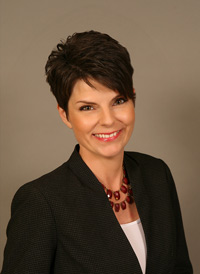When DSOs, their specialists and distributor sales reps work together, patients receive better care.
By Laura Thill

As the number of dental specialists continues to increase nationwide, more and more look to their dental service organizations (DSOs) for support. Currently, about 22.5 percent of dentists are specialists, according to Connie Snyder, director of operations, Heartland Dental. 1 And, to a great extent, they face similar challenges to those of general dentists, including rising costs, growing competition, heightened patient demands and quickly evolving technology, she notes.
“New specialists entering the industry are looking to start off on the right foot and advance themselves, but many are hindered by student loan debt,” Snyder points out. “Many experienced specialists are finding success, but at the cost of having to manage both the business and clinical aspects of a dental practice. Many specialists at the end of their careers have difficulty finding the right transition option. “Because of these challenges faced across all experience levels and situations, more and more specialists are turning to DSOs for support,” she continues. “As more specialists enter the field and more challenges surface, this trend will likely continue into the future.”
Customized solutions
In spite of the fact that many specialists today look to DSOs for support, they continue to act autonomously. They continue to make all clinical decisions regarding their patients, as well as leadership decisions affecting their teams, says Snyder. “At Heartland Dental, supported specialty offices have complete autonomy in the supplies used and clinical decisions made within the office,” she explains. At the same time, the DSO works hard to ensure a good match between specialists and the practices they join. “We look for the right fit so that the specialist and dentist can collaborate on all purchasing decisions and outline office protocols in a way that they are both comfortable with,” she says.
At the same time, it is important for the DSO to recognize that each of the specialists it supports comes with a unique set of needs. “Every supported specialist has a different situation with different needs, so customized solutions for each must be created and offered,” says Snyder. “In doing so, DSOs can ensure these specialists are receiving the necessary level of support to achieve their goals, whether that be gaining administrative support, developing an effective transition strategy, advancing their clinical and leadership skills, or more. Although it’s a little different for each specialist, these customized plans ensure that the same level of support is consistently provided to all of them. In terms of company goals, values and culture, each DSO also consistently delivers the same message to all supported doctors, including specialists.”
The role of the sales rep
For sales reps, servicing DSO-supported specialists is much like working with general dentists in the organization. Typically, the DSO’s supply and procurement teams act as the first point of contact for supply and technology reps. “Certainly, specialists choose which supplies they wish to use,” says Snyder. “But, the procurement team acts as the point of contact for vendors and will help specialists obtain the most effective – and most cost effective – materials possible.”
Supply and procurement teams manage accounts with all vendors and labs for supported offices, she continues. “They help facilitate and process office orders for all clinical supplies, office supplies, large dental equipment and service technicians for the offices. They also negotiate fees and terms, and troubleshoot any issues related to procurement partners.” By working together, the specialist, the DSO and the sales rep can ensure the right solutions are available to deliver the best possible care to patients.

